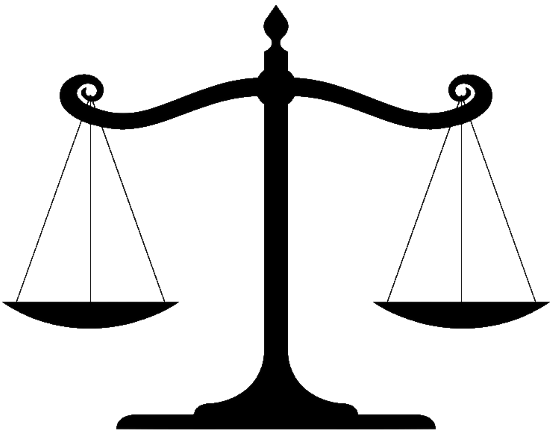-
Monnyholuwaposted in Legal System • read more
Tax accounting process is a process in the field of accounting Where focus is on filing the appropriate tax return and preparing for future tax liabilities through effective planning and decision making.The process of tax accounting differ immensely from one jurisdiction to another.
-
Monnyholuwaposted in Legal System • read more
Nigeria operate a federal system of Government which consists of the federal, state and local Government.
Section 7(1) of the 1999 constitution provides that "the system of Local Government by democratically elected Local Government council is under this constitution guaranteed ".This means that the constitution recognise the Local Government as a separate entity from other arms of Government. The Law recognize that democratically conducted election is guaranteed, Thus any other form of selection or appointment made by the State Government or any other authority in it's capacity or appointment into the Local Government outside electoral process is contrary to the constitution.Pursuant to Section 1(1)(3) of the 1999 Constitution, it provide that the Constitution is Supreme and any Law that is inconsistent with the provisions of the constitution is void and unenforceable.
In AKAN . v. A.G AKWA IBOM, the Governor dissolved the Local Government and constitute a caretakers committee in it's place. The court held that such dissolution of the Local Government and appointment of Caretakers was unconstitutional as the Local Government is a separate entity from other arms of Government. The same position was followed in BALOGUN V.A.G LAGOS STATE. -
Monnyholuwaposted in Legal System • read more
Covering the field is a legal concept where both the Federal Government(through the National Assembly, and the state Government (through the state House of Assembly ) has legislative capacity to legislate on matter as contained in the Concurrent Legislative List as contained in the 1999 Constitution. where the National Assemble has legislate on the matter,the legislative capacity of the state is suspended.
-
Monnyholuwaposted in Legal System • read more

Settlement of property is the transfer of property of a party or jointly owned to the other spouse. It confers the title over a property from one person to another. It is an ancillary relief granted during divorce proceeding. It must be contained in the divorce petition or answer and not an afterthought.
Due to the plurality of the Nigeria legal system,there are different legal principles guiding settlement of marriage under the different forms of marriage that is marriage under customary law and under statutory provision ( that is marriage under the marriage Act).
Under customary law,both the man and the woman can acquire property either before or during the marriage. The woman is not barred from holding or acquiring her own property. Also when the man acquire a property, he has sole interest or right over the property. When a marriage under customary law is been dissolved ,the woman has no right to claim for settlement of property even if she contribute to the acquisition of such property.She cannot through a court order compel her husband to settle the property to her.However under the statutory marriage (that is marriage under the marriage Act) either of the parties can apply to the court alongside the divorce petition for the settlement of the property. The legal framework for settlement of property is the Section 72 of the Matrimonial Causes Act. It provides that is any matrimonial proceeding, the court can require both or either of the parties to settle of the property owned by both of either by either possession or reversion which the court consider just and equitable for the benefit of the parties and the children of the marriage.
The court in SMEE V. SMEE gave the objective of the law as part of a general purpose of providing for the settlement and adjustment of all matters arising out of the martial relationship at one time and in one proceeding.
The property to be settled must belong to either one of the parties to the marriage.The court cannot settle a property that belong to neither of the parties as seen in WATCHEL V. WATCHEL. The property can be either real or personal property. In ANDERSON V. ANDERSON, the court held that the partnership solely owned jointly by both parties can be settled. The court in determining the extent of the property to be settled,the court would consider the circumstance of the cases including the fortune of the parties and their responsibility.
It is worthy to note that Section 73 of the Matrimonial Causes Act is not operative for marriage under customary law. It only applies to marriage under the Marriage Act.
In settlement of property, the court has to act based on what is just and equitable .This gave the court a wide discretionary power to settle property as it consider what is just and equitable. In exercising this discretionary power, LORD DENNING in COOPER V. COOPER held that the court should act judiciously.
The court also can exercise its discretionary power on anti-nuptial and post nuptial agreement.Anti nuptial agreement are agreement made in contemplation of marriage.While post-nuptial,according to WILLE J. in PRINCEP V. PRINCEP, is a settlement made by a wife in the character of a wife,a husband in the character of the husband or both in the character of husband and wife in marriage. If the court approve such agreement,it becomes a binding contractual agreement.
The court can varies the settlement agreement either anti-nuptial or post-nuptial as it consider just and equitable for the benefit of both or either of the parties and the children of the marriage. This variation can be the whole settlement agreement or a part of it.The court in making this variation must consider
*Means of the parties
*The earning capacity
*Conduct of the parties
*Other relevant consideration.
Settlement of property for divorce proceeding is advantageous . Firstly it is an alternative to payment of lump sum where it is more reasonable.secondly, where the respondent or jointly own matrimonial home, the court may settle the property to provide a home for the applicant and the children. Also it is to prevent against uncertain financial future of the respondent.
In relation to the children of the marriage, the court would only settle property for the benefit of child below 21 years except special circumstance where it is justifiable to settle the property for its interest.( Section 73(4) M.C.A.)
In conclusion,the application of the law on settlement of property as contained in Section 73 of the M.C. is the only applicable to marriage under the Marriage Act and not those under customary Law. -
Monnyholuwaposted in Legal System • read more
ANSWER:
- A lease create an estate in land for the lessee but a license create no interest and estate on land but the permission to use land which would have otherwise have amount to trespass.
- A lessee has exclusive possession over the land while a licensee does not have exclusive possession but a permission to use a land.
- Unauthorized entry by lessor would amount to trespass as the lessee has exclusive possession.But an unauthorized entry by the licensor will not amount to trespass maybe a breach of contract.
- A lease can be assigned or sublet provided the lease agreement does not contain a clause against such assignment or sub-letting.While a license cannot be assigned or sublet.
5.A lease cannot be revoked when granted while a license ,upon reasonable notice, can be revoked.
6.The death of the lessor doe not put an end to the lease agreement neither the change of grantor.But the death of the licensor or change of grantor does put an end to the license agreement as a license is a personal privilege confer on the licensee by the licensor.
-
Monnyholuwaposted in Legal System • read more

According to Lord PENZANCE in the case of HYDE V. HYDE,marriage is the voluntary union between man and woman to the exclusion of all others.There are certain circumstance where a marriage can be void or voidable.
Void marriages are marriages which is defective to the root.There are marriage not recognize by law as such marriages are against public policy or prohibited by law.For instance ,Section 3(c) of the matrimonial Causes Act (M.C.A),any union between two people within the prohibited degree of consanguinity and affinity is void.
Voidable marriage are marriages which are valid until set aside by one of the party.The defectiveness do not go to the root of the marriage.For instance where a woman is pregnant for another person other than her husband.Section 5(1)(a) of the MCA and the court in SMITH V. SMITH provide that such pregnancy is a ground to held the marriage as voidable and can be set aside.There are difference between void and voidable marriage and they are:
1.Void marriage is non existing from the beginning of the marriage while voidable marriage is recognized by law until set aside.
2.As regards rectification,void marriage cannot be rectified but voidable marriage can be rectified either through cohabitation or by prescription.- The validity of void marriage can be challenged even after the death of either party but a voidable marriage can ONLY be challenged during the lifetime of both parties and not after the death of either parties.
- For void marriage ,a decree declaring it void is not necessary.But for a voidable marriage ,a decree is necessary to annul such marriage.
5.Where the marriage is voidable ,the wife automatically acquires the domicile of her husband by reason of the marriage but for void marriage ,the wife does not acquire the domicile of her husband.
6.For voidable marriage,only parties can apply for annulment but for void marriage ,a third party can apply for declaration of marriage as void.
-
Monnyholuwaposted in Legal System • read more
@propser
Marriage is a contractual relationship recognize by law and its terms for the creation and dissolution are dictated by the law.Therefore for a marriage to be dissolved ,the law will play an important role in providing steps for such dissolution.
under section 15(1) of the Matrimonial Causes Act,there is only one ground for the dissolution of marriage and t6he ONLY ground is that the marriage has broken down irretrievably.However there are different factual situation consider by the court to prove that the marriage has broken down irretrievably.- Where the respondent willfully and persistently refused to consummate the marriage can lead to dissolution of marriage.
2.The respondent has committed adultery and the petitioner find it intolerably to live with the respondent. - Frequent conviction and habitually leave the spouse without support.
- Desertion.
- Living apart continuously for two years immediately proceeding the presentation of the petition and the respondent does not object to the dissolution of the marriage.
6.Living apart for three years immediately proceeding the presentation of the petition and the respondent does not object to the dissolution of the marriage.
7.The respondent refuse to comply with the conjugal rights. - There is a presumption of death of the respondent due to the absence over a reasonable period of time.
- Where the respondent willfully and persistently refused to consummate the marriage can lead to dissolution of marriage.
-
Monnyholuwaposted in Legal System • read more

The Sheriff and Civil process Act provide the rules for the services of writ of court where the defendant is not within the court 's territory of a component state of the federation. It also provide the basis a court of component state can assume jurisdiction over a defendant who is not present within it's territory or jurisdiction.
-
Monnyholuwaposted in Legal System • read more

The world system has become advanced as information are disseminated through the click of a finger via the internet as the world as become a global village. The world has moved from the use of manual equipment to more sophisticated and technologically advanced equipment. The use of technological advanced has made information spread faster from the shores of one country to another.Information technology include equipment, applications and services used in the dissemination of information from one end to another.
Nigeria, prior to 1990's lag behind in the use of technological methods in sharing information. At the inception of 1990's,Information Communication Technology (ICT) took a new turn as it's awareness became a part and parcel of Nigeria Communication System. The Government of president Olusegun Obasanjo established the National Information Technology Development Agency (NITDA) through an Act of parliament (that is the NITDA ACT cap.156 2007).
Information technology tax are tax imposed on companies engaging in information communication technology. However not all companies in Nigeria are subject to information technology tax.Section 12(2) of the NITDA Act provide that certain companies are under obligation to pay information technology tax and such companies include: Telecommunications companies, finance institution, insurance companies, pension managers,internet service providers and cyber companies.
These companies are expected to pay the tax at the taxable rate of 1%of their gross profit.Unlike companies income tax Where the tax is charged based on the net income or profit(that is income after deduction of expense or exempted income or deductible income from the gross or aggregate income,Information technology tax is taxable on the gross profit of a company before any deduction is made.
Some has argued that this tax is an additional burden on companies considering the 30% of companies income tax already liable for such could lead to multiple tax from the same tax base or income.some also argued that it could lead to tax evasion and create unnecessary complexity in the administration of tax.
It is important to note that it is not all companies listed above has the liability to pay.To be liable under the Act,such companies must earn at least an annual profit of 1 million Naira. This caveat tend to protect such companies which originally would have fallen under the Act but make little profit on an annual basis.This caveat can also be used as an escape route by companies to escape tax liability by hidden some profit made by it.
The information technology tax is administered by the Federal Inland Revenue Services (FIRS).Once the tax is collected, it is put into a trust fund account called the Information technology Development Agency trust fund.This monies are exempted from income tax.
Several questions has been asked challenging the essence and validity of the tax.Some has argued that the tax is a creation of a regulatory body that us the National Information technology Development Agency and thus such tax is null and void and unenforceable.
This is because based on the principle of taxation "No representative, No tax".For a tax to be imposed on the citizenry with legal backing,it must be passed by the legislature arm of Government. Thus the information tax being a product of a regulatory body is null and void.Some has argue for the continuation of the tax on the ground that the tax may have been imposed especially on foreign companies who would have avoid taxes such as CITA or TETFUND in other ways.
In conclusion, the tax has not being so much usefulness as the money thus generated has not been put into positive use such as transforming the Nigeria system from Analogy to digital.
-
Monnyholuwaposted in Legal System • read more
Value Added Tax is a tax imposed on buying and selling goods and service. It is also called consumption tax.VAT is borne by the final consumer but are collected at each stage of production and distribution(I.e wholesale and retail).In Nigeria, the chargeable rate on VAT is 5% of the Value of the taxable goods and services. It is governed by the Value Added Tax Act.
This paper is to discuss,the timing of VAT Registration and the basis questions to be considered are who is expected by Law to register, when is the registration supposed to take place,who is in charge of registration of VAT procedure to registering
Pursuant to section 8 of the Value Added Tax Act,it provide that every business must register for VAT with the FIRS within 6 months of commencement of business.Therefore,the civil responsibility to register under the Law is imposed on manufactures,suppliers of goods and services which are not exempted by the Value Added Tax.
For registration, there are certain document required for such registration. For companies,it requires:- Memorandum of association
- Certificate of incorporation
- Application letter on company letter headed paper
- Utility bill
- Duly filled and officially stamped VAT form.
For registered business, the requirements include:
- Business name registration Certificate.
- Utility Bill
- Duly filled and officially stamped VAT form
- Application letter on business letterhead paper.
There are certain goods which are exempted from V.A.T. and persons dealing with such goods and services are not expected to register for V.A.T.
Exempted goods are contain in Part 1&2 of the First schedule of the V.A.T Act. They include:
- Basic food items
- Books and educational materials
- Baby products.
- Newspaper and magazine
- Medical and pharmaceutical products
- Commercial vehicle and their spare parts.
- Agricultural equipment and product and veterinary medicine.
The exempted services include:
- Medical services
- Services rendered by community banks,peoples bank and mortgage institutions.
- Plays and performance conducted by educational institutions as part of learning.
The rule of registration also apply to foreign company.For foreign companies or persons,it has to register once it commence business in Nigeria.The foreign companies register with the address of the consumer of the goods and services as it's address for the purposes of correspondence.
In conclusion,It is an offense not to register with FIRS for Value Added Tax and it's punishable by Law.